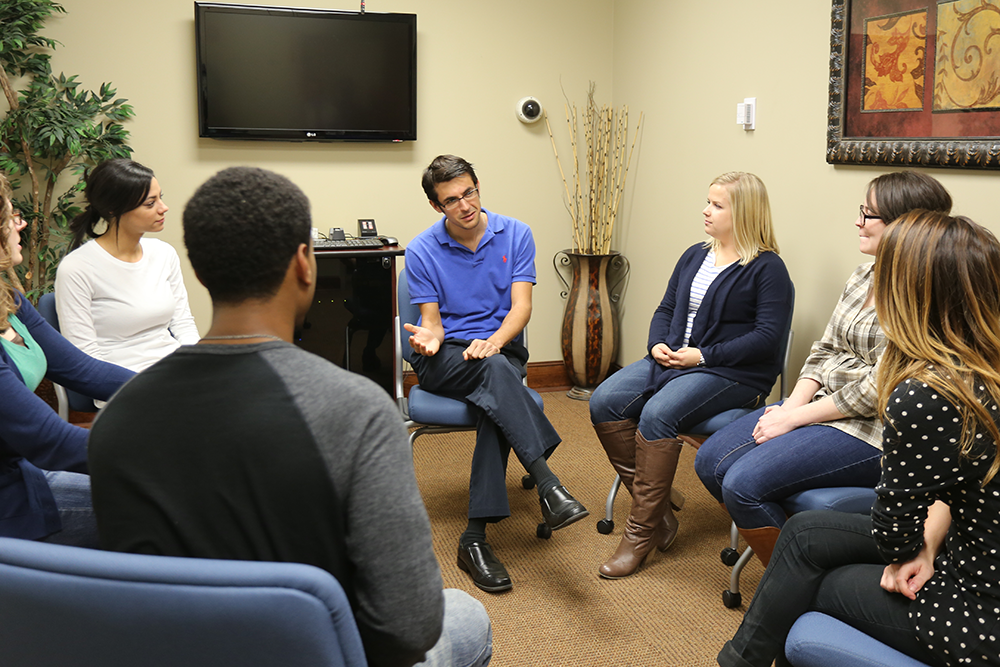What is Mental Health Counseling and What Can I Do with a Master's Degree?
Mental health counseling is a demanding but rewarding field. A mental health counseling master’s degree helps you to help others. By choosing to earn your mental health counseling master’s degree, you are making the decision to learn a profession that positively impacts and improves people’s lives. 
In the mental health counseling program at UL Lafayette, you’ll learn mental health counseling theories and techniques, and then get the opportunity to apply them in real-life situations during your internship and practicum experiences. While you’re still earning your mental health counseling master’s degree, you’ll be able to connect with clients in our Clinic for Counseling and Personal Development, leading and assisting individual counseling, family counseling, couples counseling, group therapy, and play therapy sessions.
Our curriculum places an emphasis on counseling research, helping relationships, multicultural counseling, lifestyle development, and human development. You’ll learn advanced counseling techniques and the intricacies of counseling in community mental health settings. You can further customize your curriculum with electives, choosing from courses in marriage and family counseling, substance abuse counseling, working with children and adolescents, crisis and grief counseling, and even by pursuing your own independent research.
After graduating from our mental health counseling program, you will have met the educational requirements necessary to apply for licensure as a professional counselor (LPC) in Louisiana. From there, you can pursue a career in fields including criminal justice and corrections, health care, management or administration, mental health, government agencies, in-patient treatment facilities, or open your own practice. You may work in individual or group settings, especially with substance abuse and behavioral disorder counseling and with families.
The mental health counseling program prepares you for a range of career opportunities and populations you can work with after graduation, including:
- Behavioral disorder counselor
- Counselor
- Marriage and family therapist
- Mental health counselor
- Substance abuse counselor
- Therapist or vocational counselor
Most importantly of all, you’ll be prepared to make a positive difference in people’s lives by helping your clients overcome difficult situations and mental health issues, including depression, anxiety, substance abuse, to name just a few. Beyond helping your clients, mental health counseling professionals work with family members so they can learn how to help their relatives with mental health issues.
With your mental health counseling degree, you’ll work with clients to development treatment plans, work with their families to help them cope with the clients’ issues, and empower clients. It can be a challenging career, full of ups and downs, but seeing your clients succeed in their efforts is gratifying.
Ready to become a mental health counselor? Learn more about our mental health counseling program >
